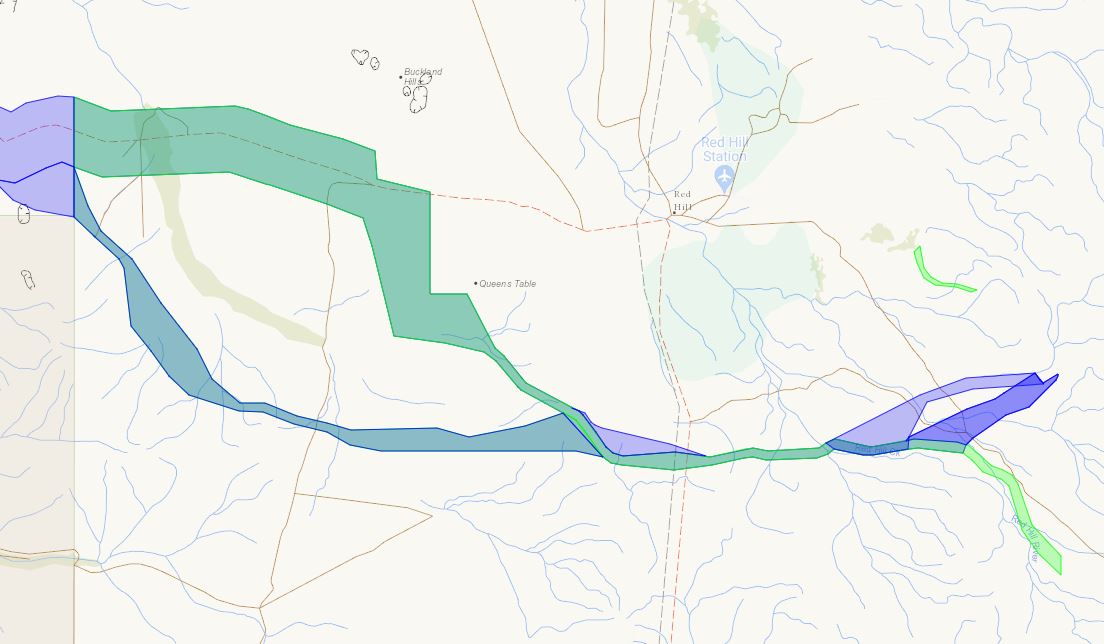This case is a perfect example of the issues that mining companies run into when operating on and working with pastoral leases.
Leanne Corker, former Pastoral Board Chairwoman, and John Corker own Red Hill Station Pastoral Lease in the Pilbara. A subsidiary of Mineral Resources Ltd (MRL) applied for several miscellaneous licences between December 2020 to February 2021, which pass through Red Hill, for the purpose of transporting iron ore to Onslow.
The Corkers lodged objections against the miscellaneous licence applications (case ACN 629 923 753 Pty Ltd v Leanne Margaret Corker & Ors) claiming that it would cause numerous environmental threats to their pastoral lease, including:
- facilitate the spread of weeds, including mesquite;
- damaging all the fauna and flora;
- altering the flood plains and ecosystems; and
- creating noise and dust pollution.
It would also interfere with the pastoral business, by posing a risk to personnel and injury to the cattle.
The hearing was to occur on 31 May 2022, but the objections were withdrawn the day before. MRL’s subsidiary (the applicant) sought costs of the proceedings under reg 165(4) of the Mining Regulations 1981 (WA), which states that if the court is satisfied that the objector frivolously or vexatiously commenced or defended the proceedings, or cause undue delay to the proceedings, costs may be awarded against them.
‘Frivolous’ and ‘vexatious’ are not defined in the Mining Act, however they are commonly used words in litigation. The dictionary meaning of vexatious is ‘causing vexation; vexing; annoying’ and to vex is to annoy, torment, irritate, provoke, make angry; frivolous is ‘something of little or no weight, worth or importance; not worthy of serious notice.’ Undue delay in the context of the Mining Act regime is excessive delay.
The Applicant claimed the Corkers objections were frivolous and vexatious, and caused undue delay, based on the following:
- The objections had no merit;
- The objections were being used for commercial pressure;
- There was no engagement by the Corkers;
- Corkers delayed the hearing dates;
- The Corkers failed to appear for hearing dates;
- The expert advice was ignored; and
- Wardens in a previous hearing of the same type dismissed Corker’s claims.
An objection may be of a public or of a private interest.
The Applicant’s case was that the ‘public interest’ objections were, in truth, ‘private interests’ and such are not objections that should not be entertained by the Warden.
However, if private interests have a small section of the ‘public’ interest, it may be a public interest. Pastoralists have no right of veto, their objections being commercial rights are protected by compensation.
The objections in the present case relate to private interests as follows:
- damage to the pastoral business;
- interference with quiet enjoyment of the lease;
- Increased costs of production;
- Reduced productivity of the pastoral land;
- The risk of contamination or death of livestock; and
- The risk of accident or injury to station personnel;
and as such the objections have no weight, or merit.
The Warden was satisfied that the concerns raised by the Corkers and their experts were addressed by The Applicants experts and its witnesses. Ms Corker admitted that they rejected the proposed settlement of the objections because the commercial terms were not agreeable.
The Warden concluded that:
“a. The objections regarding private interests and competing land-use were commenced frivolously and vexatiously;
- The objections regarding the public interest were not commenced frivolously;
- The objections regarding private interest and competing land use were defended frivolously and vexatiously;
- The objections regarding public interest were pursued after the end of December 2021 frivolously and vexatiously”
The Warden ordered that the Corkers pay the reasonable costs incurred by the Applicant after 31 December 2021 on all objections by the Corkers.
It is disappointing to see that the relationship between a high-profile pastoralist and a mining company deteriorated to such lows that a pastoralist resorts to lodging an objection to mining tenements.
This is an expensive process for both parties. If there is one lesson to learn from this case – get on top of your stakeholder relationships.
LandTrack Systems offers a variety of training to help professionals level-up their knowledge in relation to tenement management.
Navigating Exploration Agreements helps mining professionals to understand the complex agreements that come across their desks.
Advanced Tenement Management builds on the skills of experienced tenement managers and moves into strategic acquisition and maintenance of tenure.
Find your path to professional growth with any of our training courses here.

